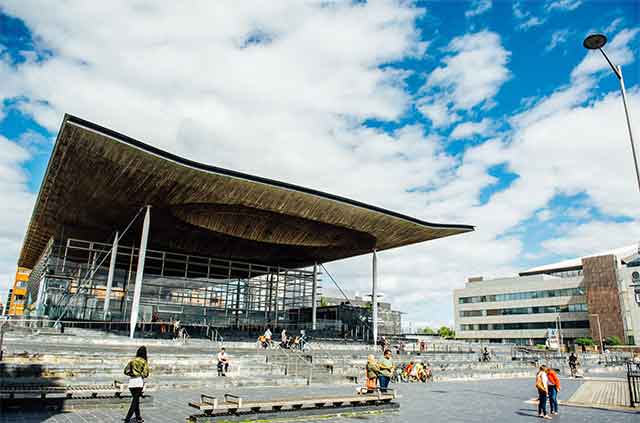Mark Drakeford resisted calls to exclude under-18s from the Welsh Government’s plans for a tourism tax from 2027.
The finance secretary told the Senedd’s finance committee that exempting children from the levy as in some other European countries would lead to a “significant fall” in the tax take.
He said: “I see that you have heard from a range of voices who argue that particular groups ought to be excluded from the levy…. This is a broad-based tax with a low charge – if you narrow the base, the only way you can sustain the take from the tax is to put the charge up.”
Prof Drakeford said taking under-16s out of the £1.25-a-night levy would see the estimated £33m revenue fall to £21m, “eroding the chances that the levy will be of any use.”
He stressed: “If the committee wants to argue for excluding children from the levy, you are arguing for a higher charge on the people who are left – you can’t have both.”
‘Worst-case scenario’
Prof Drakeford pointed out: “Children buying sweets pay VAT. Children are not excluded by the virtue of being children from the taxation system.”
He defended the visitor levy bill after a report found the levy could lead to between 250 and 730 job losses and cost the Welsh economy £16m to £47m a year.
The finance secretary was questioned about the economic impact assessment by Calvin Jones, a professor at Cardiff University, as he gave evidence on February 12.
He said: “Professor Jones’ report deals with a set of complex considerations. It has, inevitably, to make a series of assumptions and deal with a series of uncertainties. It assumes, for example, that all 22 local authorities have adopted the levy from day one.”
Rejecting suggestions the report undermines the case for a levy, Prof Drakeford told the committee some witnesses exclusively referred to figures for a worst-case scenario.
‘Even if’
He said: “I did think there were some witnesses who came before you who presented Prof Jones’ report as though it was a set of predictions rather than a range of possibilities.”
Prof Drakeford added: “Even if the impact was at the top end, you are talking about a few hundred jobs in an industry that employs over a million people…. This is not an industry, I think, that will struggle to accommodate the impact of the levy.”
Pressed about the timing with the sector still recovering from the pandemic, he said: “When some organisations have said to you ‘oh, not now’, what they really mean is ‘not ever’.”
Prof Drakeford stressed “There’s a long lead in, this is not an idea that has suddenly been put in front of the sector and there’s a long path in front of us as well.”
He said the earliest any council could introduce a local levy would be April 2027, adding that he expects only a modest number of local authorities to do so initially.
‘Fruit salad’
Peredur Owen Griffiths, who chairs the committee, raised the “cumulative” effect of policies such as national insurance and the 182-day rule for holiday lets to qualify for business rates.
Prof Drakeford replied: “We’re familiar with the argument about comparing apples and pears but that list, I think, is the full fruit salad because they’re all completely different issues.”
He told the committee many microbusinesses in the tourism sector will be no worse off after the UK Government’s decision to increase employer national insurance contributions.
Asked about introducing a day-visitor levy rather than an overnight tax, the former first minister said: “I didn’t want to see the search for the perfect driving out the possible.”
Prof Drakeford rejected suggestions that families could upend their holiday plans over the proposed £1.25-a-night levy, arguing it will have a marginal impact.
‘Broadly invisible’
He said: “There are so many other factors that will have an impact both on costs and people’s decision-making which will loom far larger than the visitor levy.
“On the whole, what we hear from the continent where this is commonplace is that visitor levies are broadly invisible to the end user.”
Prof Drakeford explained the bill would require councils to consult on whether to adopt a levy then report annually on the use of the revenue raised.
He told committee members: “The idea that you could easily slide a bit of that money away towards something else, I don’t think will be easy.”
Prof Drakeford said the visitor levy bill, which would create a fee-free register of providers, will be followed by a second bill on licensing accommodation in the autumn.

